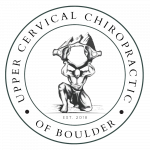What is Depression?
Depression is a debilitating mental health disorder characterized by persistent and overwhelming feelings of sadness, isolation, and hopelessness. Depression affects how you feel, think, and behave. It can lead to a variety of emotional and physical problems. You may have trouble performing day-to-day activities, and depression may make you more susceptible to other health problems, such as obesity, heart disease, and diabetes.
Signs and Symptoms of Depression
While depression can manifest differently for different people, there are some common signs and symptoms. These include feelings of sadness, hopelessness, and anxiety; loss of interest in activities that were once enjoyable; difficulty concentrating, remembering details, and making decisions; fatigue and decreased energy; insomnia, early-morning awakening, or oversleeping; appetite or weight changes; thoughts of death or suicide; restlessness; irritability; and persistent physical symptoms that do not respond to treatment, such as headaches, digestive disorders, and chronic pain.
How the Upper Cervical Spine Affects Depression
There is mounting evidence that the upper cervical spine may play a role in worsening or triggering episodes of depression. While the causes of depression are complex and multifactorial, brain chemistry and hormone levels are believed to be key drivers in a large number of cases.
When one or more of the vertebrae of the upper cervical spine are misaligned, the ensuing pressure and inflammation can have a cascade effect on the function of the brainstem, autonomic nervous system, and central nervous system. This in turn can disrupt the delicate chemical balance in the brain, decreasing the production of important neurotransmitters and hormones involved in mood regulation. Left untreated, imbalances in brain chemistry and hormone production can lead to a range of mental health problems, including depression.
How Our Depression Treatment Works
At Upper Cervical Chiropractic of Boulder, our expert chiropractors, Dr. Christina Coblish and Dr. Ryan Moeskau understand that not everyone responds to conventional treatments for depression. For those people, upper cervical chiropractic care can offer a natural and alternative treatment that has been shown to be effective.
When treating depression, the first step is to determine whether your condition is linked to injury or misalignment in the upper cervical spine. To do so, Dr. Coblish and Dr. Moeskau will use a range of diagnostic tools, including cone-beam computed tomography (CBCT) scans, to evaluate your spinal health. Unlike a static, black and white X-ray, a CBCT scan is a dynamic image, allowing us to click and examine your spine from any direction.
If a misalignment is detected, Dr. Coblish and Dr. Moeskau will use the Blair Upper Cervical technique to realign the affected vertebrae and alleviate pressure and inflammation around the brainstem. The Blair Upper Cervical technique is a progressive, gentle, and precise form of chiropractic care. Blair correction techniques will never involve painful cracking, twisting, or pulling of the spine. By realigning the vertebrae in the upper cervical spine, Dr. Coblish and Dr. Moeskau aim to eliminate dysfunctional hormone production and restore a natural balance of happy chemicals in the brain.
If you’re struggling with depression and haven’t found relief with other treatments, we’re here to help! We service patients across Colorado, including Boulder, Longmont, Louisville, Erie, Lafayette, Broomfield, and Denver.


